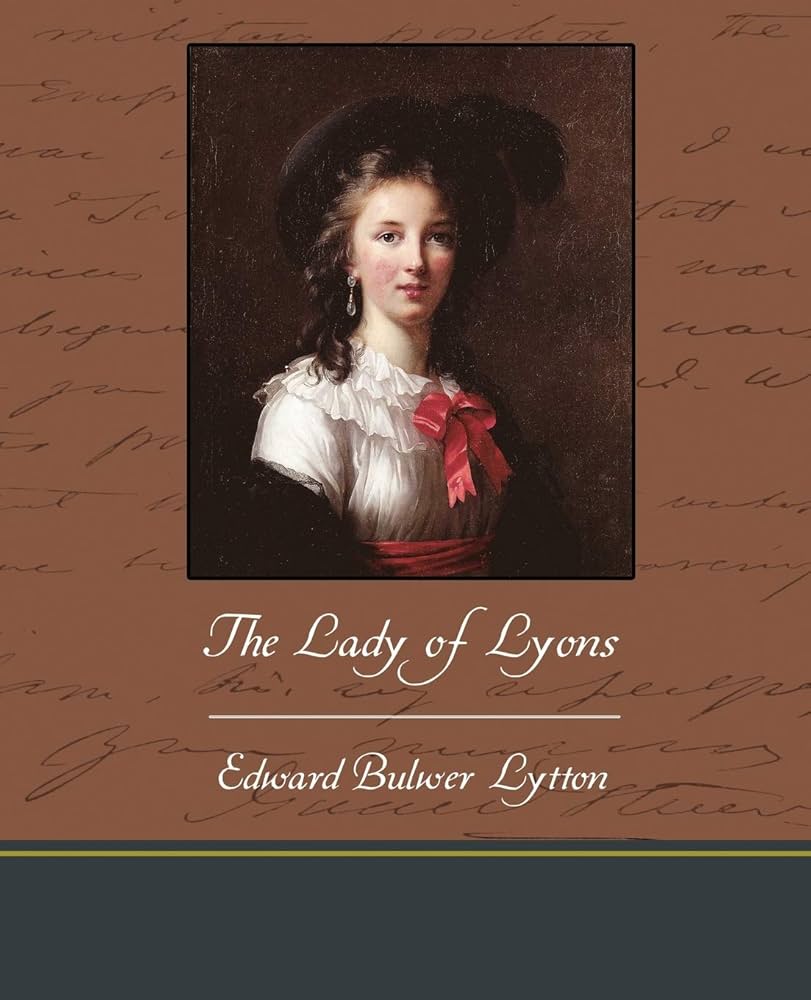Scene I — The Lady of Lyons
byScene I of The Lady of Lyons Act V opens on the bustling streets of Lyons, painted with the passage of time and the shadow of unresolved love. It’s been over two years since Pauline and Melnotte’s lives were torn apart by pride and deception. Now, the once-humble soldier Paul Melnotte has become Colonel Morier, a hero honored for valor, yet still haunted by the question of loyalty in love. As conversations among military officers orbit around his courage and mystery, they also hint at a deeper pain—his desire to find a woman who has remained steadfast through silence and distance. Though the war has shaped his reputation, it hasn’t soothed the emotional wound left by lost affection. This chapter begins not with triumph, but with a subtle longing that reminds us how deeply personal battles often lie beneath public glory.
When Damas arrives, now bearing the rank of General, he carries with him the familiarity of past ties and the anxiety of unresolved stories. The camaraderie shared among soldiers is quickly interrupted by the unexpected appearance of Beauseant, who still harbors ambitions to claim Pauline’s hand. Beauseant, unaware of the lingering bond between Melnotte and Pauline, presses forward with a plan to annul her marriage. His confidence is rooted in misjudgments—assuming Damas has profited richly from military campaigns and could therefore oppose him as a rival suitor. Yet Damas, ever straightforward, dispels this belief with clarity and discomfort. What emerges is a conflict not of wealth or strategy, but of emotional integrity, loyalty, and memory.
As Beauseant boasts that Pauline has agreed to marry him, Damas is visibly shaken. The news clashes with his sense of honor and recollection of Pauline’s character. He struggles to reconcile the image of the woman he once knew with one who would abandon her vows so easily. Still, he chooses restraint, opting not to reveal too much too soon. Damas’s role becomes increasingly complex—no longer merely a friend or soldier, but a guardian of truths that others seek to erase. His inner conflict mirrors the larger theme of the play: how pride, when left unchecked, can cloud judgment and twist love into something transactional.
Monsieur Deschappelles soon arrives, eager to finalize the arrangements, unconcerned by the spiritual or emotional implications of annulling a marriage. His priorities lie with appearances, reputations, and financial recovery. To him, marriage is a negotiation, not a covenant. Damas, caught between loyalty to old friends and the absurdity of what he’s witnessing, feels cornered into witnessing a farce he doesn’t believe in. The Deschappelles family, once proud and dismissive, now moves with haste and convenience, redefining their values based on what benefits them most. Their transformation is telling—it speaks to how easily principles dissolve under pressure. Damas sees this and recoils, yet remains present, a reluctant observer of how far people can stray from honor.
In a moment of quiet reflection, Damas delivers a soliloquy that strips the grandeur from love and leaves it bare. He speaks not with bitterness, but with weary understanding, having seen firsthand the way love elevates and destroys. He recalls how once Melnotte’s love was sincere, full of innocence and hope, but was rebuked by status and vanity. Now, Melnotte returns a changed man, but still tethered to the emotional burden Pauline left him with. Damas’s voice is one of melancholy and wisdom, not condemnation. His soliloquy reminds us that the human heart does not recover from betrayal easily—it adjusts, learns, and waits for a moment to reclaim what was true.
At that very juncture, Melnotte reenters—not triumphant, but worn and pale. He has overheard enough to sense betrayal, though the full story has not yet unfolded. His appearance injects urgency into the quiet desperation of the scene. Love, once buried under disappointment and disguise, rises again—not with sweetness, but with fire. Melnotte is not the man he was; he now bears scars both visible and unseen. What he seeks is not just Pauline’s affection, but a restoration of the truth and justice denied to him. In his silence, there is a storm building, one that threatens to overturn every convenient lie built by those around him.
As the act draws to a close, the drama no longer hinges on status or marriage contracts—it is carried by the collision of unresolved emotions. Melnotte’s reappearance signifies more than conflict; it marks a reckoning. Each character now faces the consequences of past choices. What once seemed settled is undone by truth. Pauline’s role, still unseen in this moment, becomes central to how the next steps will unfold. The play challenges viewers to question whether love can truly survive pride—or whether it must first be broken and rebuilt from its very foundation. This powerful shift from surface tensions to emotional depth lays the groundwork for redemption to step in or be lost forever.

